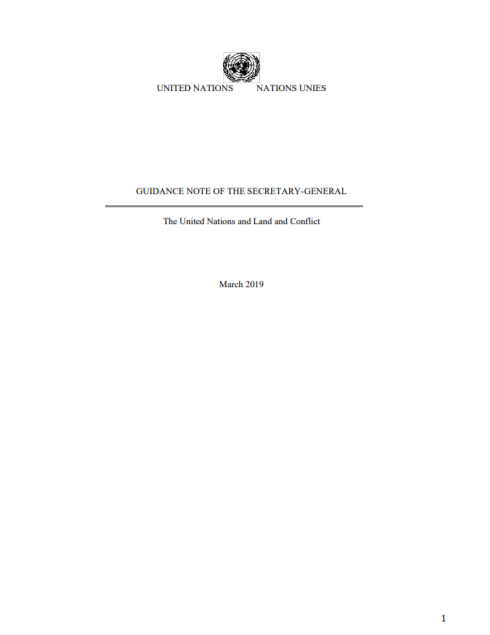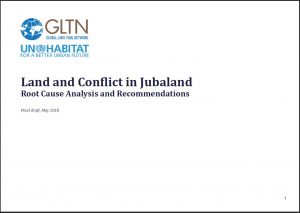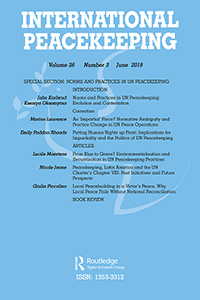GUIDANCE NOTE OF THE SECRETARY-GENERAL
The UN Framework for Action in this Note helps to identify potential entry points to integrate land in conflict analyses, planning and assessment processes, supports engagement of UN leadership and outlines key activities to consider in areas of UN work - such as support to peace agreements and mediation, human rights, gender equality, rule of law and governance. This Note provides guidance on partnership and the use of practical tools for analysis, coordination and programming.











